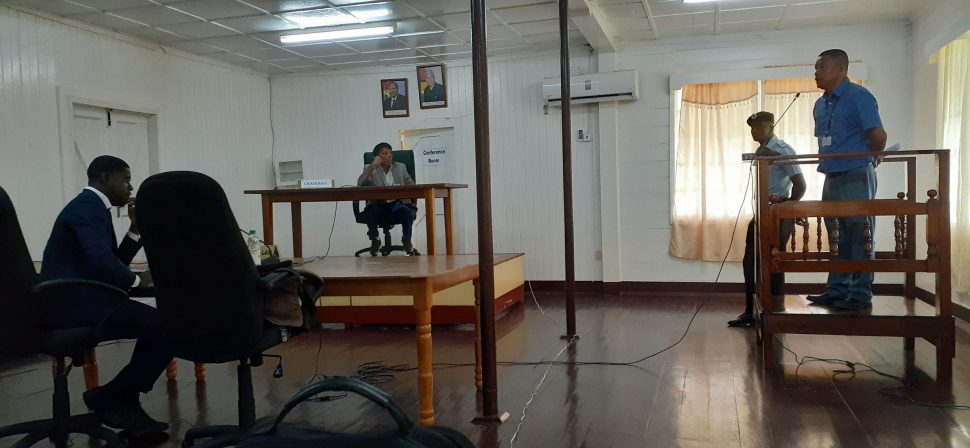Director of Maritime Safety John Flores yesterday voiced the need for regulatory and enforcement agencies to have more resources in order to properly monitor vessels plying their trade in Guyana’s waters.
Flores made the recommendation to the Commission of Inquiry (CoI) into the fatal pirate attack in which over a dozen fishermen were killed off the coast of Suriname last year.
During a public hearing hosted by the CoI, Flores stated that his duties involve generally overseeing the safety of vessels in Guyana’s waters as well as the certification of seamen. He explained that all vessels that ply their trade in Guyana should register with his agency, however, he admitted that some persons would not register their vessels.
When questioned about the monitoring of the vessels, he said the “Coast Guard is the enforcement agency of the state that monitors that. We are the regulatory agency that is responsible for registering and licensing.”
He added, “In terms of monitoring, therefore, we would work in coordination with [the] Coast Guard and other agencies, such as marine police, to monitor and to try to bring all vessels under registration but it is a work in progress.”
In terms of prosecutions over unregistered vessels, he said the police would contact them to clarify whether the vessel in the matter is registered. “So we do help the police in prosecution,” he added.
Flores also explained that there is an Anti-Piracy Task Force, which is made up of both regulatory agencies and enforcement agencies in Georgetown. However, he was then asked whether there is an anti-piracy task force set up in Berbice and he said not to his knowledge.
When asked for recommendations that will assist to make his work more effective, he said, there is a formulated anti-piracy plan to deal with patrolling the sea space and rivers of Guyana and also, to have legislation in place where they can monitor vessels and to have a distress device on vessels so as to allow fisher-folk to signal for help. According to Flores, the 2018 fisheries regulations requires fishermen to have a device onboard where they can be monitored at sea. He said he is not sure where the implementation of that requirement stands but that he is sure that it would require cooperation between fisher-folk and the Department of Fisheries to be fully completed.
Further, he said, recommendations from the Anti-Piracy Task Force include capacity building and increasing the resources of regulatory and enforcement agencies, such as more boats for the coastguards and marine police and collaboration between the enforcement and regulatory agencies.
He was then asked whether it is his view that such agencies are in need of resources to properly monitor issues at sea, such as piracy, to which he said yes.
In terms of having a limit of vessels per person, he said, “There is nothing I have come across in our act can limit a person.” Flores added, he would not comment on the amount of vessels one person should be allowed to register without a proper study.
He explained that if persons who are registered fail to be present for an inspection once a year, their licence could be suspended but he added that “our suspension has no reality unless it is enforced by the Coast Guard, the enforcement agency.”
Additionally, he said that they are working to establish an office in New Amsterdam before the end of the year. He noted that they host outreaches along with the enforcement agencies at least twice a year throughout the country. For Berbice, he said, they would only go up to the Number 66 Fisheries, since further up the Corentyne would be out of their jurisdiction. “
In terms of boats being registered in Suriname, Flores said that is understandable since the fishermen’s predicament is they want to fish in Suriname. “The 66 koker, the exit of it is in Suriname because the eastern boundary for Guyana is at 61, the maritime boundary. So, when they exit they exit into Suriname’s water and therefore the authorities in Suriname, as far as we are aware, can enforce then, so if they want to work in Suriname they must be registered in Suriname,” he noted.
The CoI, ordered by President David Granger, is being led by Dr. Rishee Thakur.






